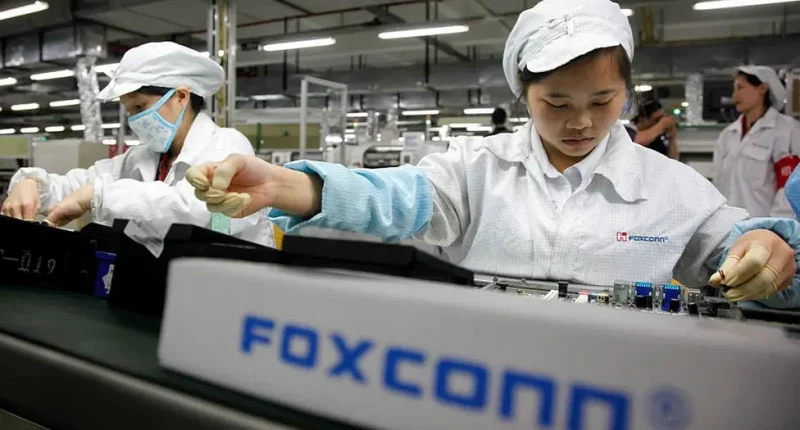You must be aware that every iPhone and Apple product used around the world is made in China, Taiwan and now India as well but the chips that are used inside them are made in Foxconn’s factories in China and Taiwan which means that the company has a huge dependency on these factories to operate efficiently. However, we can see some sort of disruption in production of these chips for the iPhones and other Apple products as the Foxconn factories in China are undergoing tax audit right now. Chinese authorities are investigating these Foxconn factories for possible tax fraud and Global Times also reveals that authorities are also out to “determine whether it had complied with land use regulations”.
Foxconn, in a statement, said “Legal compliance everywhere we operate around the world is a fundamental principle of Hon Hai Technology Group (Foxconn). We will actively cooperate with the relevant units on the related work and operations.” Apple’s CEO Tim Cook visited China last week and had meetings with the Chinese leaders as well. After the meeting, a statement was released which stated that “The two sides exchanged views on Apple’s development in China, industrial chain supply chain cooperation and other issues”. China’s government also warned the local governments not to levy inappropriate fees and intervention into the companies operating there as it could be “ultimately disrupting the business order, damaging the business environment, and affecting the confidence of the business.”
It is worth noting that the local governments are also forced to do such things as “Local governments face soaring health care and pension costs for an aging population. The national government makes some financial transfers to these local governments but has done little to assume direct responsibility for the cost of social benefits”. It is worth noting that “Beijing has pressured local governments to step up their spending on the construction of rail lines, highways, bridges and other infrastructure, as part of an effort to reduce unemployment. Joblessness among Chinese in their late teens and early 20s reached record levels by early summer, prompting the National Bureau of Statistics to stop releasing youth unemployment data”.









